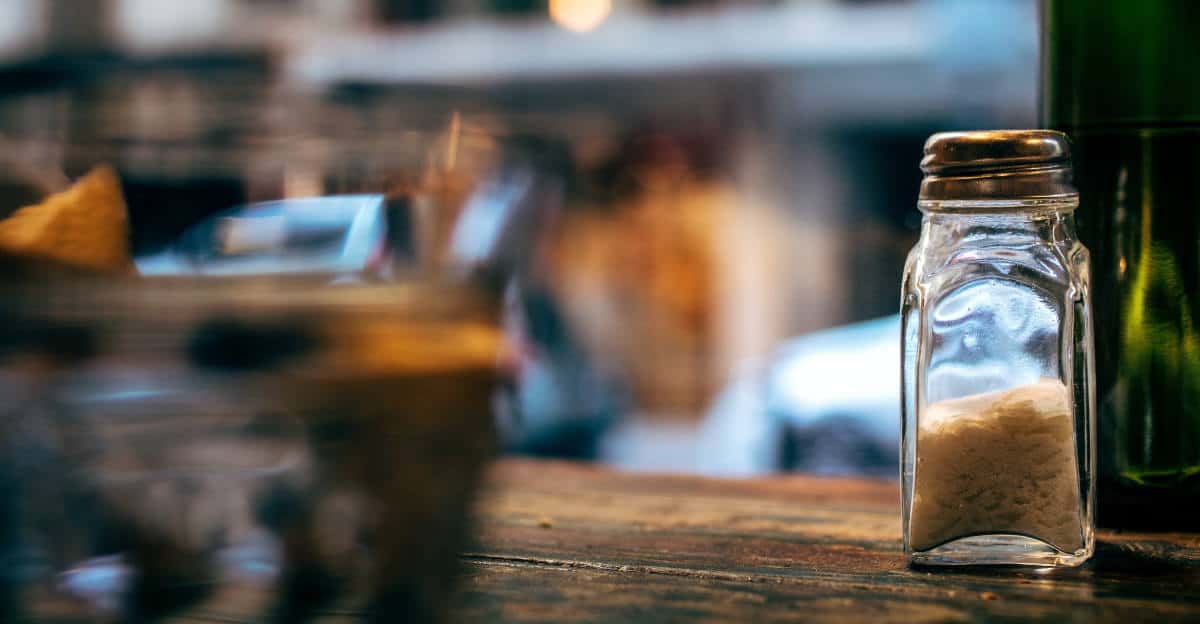Salt or Sodium (yes it’s the same thing) is a mineral. Our body contains around 250g of it, which makes up 0.4% of our body weight (so maybe a bit more salt in my body). It is an Electrolyte like Potassium, Calcium and Magnesium. Salt is important to every system in our bodies, from your blood to your nerves and even your digestive system.
If salt is so important to our bodies, are they all the same? If not, what is the best to eat? The recommendation is ¼ teaspoon a day, but if you do exercise, sweat, or even if you cry too much you will lose a lot more. Too much can give you high blood pressure and not enough can lead to muscle cramps and your body not functioning correctly. The problem with salt is that processed and convenience foods has a lot, and on average we (as a nation) are eating more and more of these types of foods, so more and more salt is going into our bodies, most of the time with us not even knowing it! So a balance is important, and mostly we don’t even think about it.
If you would like some more information on SALT, Harvard Medical has done a study that is quite interesting.
I just want to preface the following information to say, I am not an expert… this is just my opinion. You can agree, disagree, take it board or ignore it. I’m just giving you the information I have learned.
So what do we do? Firstly, I believe it is important to make as much of our food from scratch to know exactly what is in it, then pick the right sorts of salt. So what I have done is put together a little sample to show you the options so you can make an informed decision on what sort you want to use.
Table Salt
It’s is what we have used for a long time, it’s what is on most household tables in the world, but is it helping us or harming us?
Table salt (even iodised) is highly refined, not many nutrients and also contains harmful anti-caking agents, it’s cheap and nasty and I would recommend throwing it away as soon as possible. If you really like that refined salt consistency, my recommendations is a fine sea salt. Sienna makes a lovely one with no nasties and its only around $4 for 750g, which is very economical.
Sea Salt
Well then let’s talk about sea salts… The growing problem with sea salts is that the pollutants that are affecting the ocean are now affecting the salt, particularly micro plastics. These micro plastics are finding their way into our salt, which is very disappointing.
Herbamare is a sea salt with organic herbs in it. It gives a lovely flavour to all foods, you would choose to put salt on, with extra vitamins and minerals included. It is a favourite of mine especially on avocado, tomatoes and eggs.
Kosher Salt
Now with the internet giving us access to recipes all over the world, Kosher Salt often comes up in American based recipes. Kosher salt is specified in many American recipes because it is a good quality salt and writers don’t want people to just use table salt. Kosher salt has a flaky coarse structure that is particularly good at drawing out blood from meat (something that is required in Levitical food law). It is also easily dissolved allowing for the flavour to move into the food rather than stay on top.
Himalayan Rock Salt
The must-have salt of the last 2-3 years is Himalayan Rock Salt. While it is an amazing salt (when you can get the real kind, not the pretend variety) in the long run it isn’t sustainable and has HUGE food miles, as it comes all the way from Pakistan. One day, there is going to be no more Himalayan Pink Salt, so what are we going to do then? Well my salt of choice is…
Murray River Pink Salt
It is Australian, (so low food miles) it is helping to desalinate the Murray Basin and it is really tasty. It does have some of the mineral content of Himalayan Rock Salt, and isn’t as “salty” as other salts, so for me, seems to add flavour without being overly salty.
There you have it, my take on salt. Obviously it doesn’t cover every salt available on the market, as there are all the flavoured salts, as well as activated charcoal salts and volcanic salt, just to name a few. So there really are too many to talk about it all, but this gives you a start to make an informed choice.
Happy Cooking!
Article supplied with thanks to The Mother Hubbard’s Cupboard
About the Author: Liz is a home cook focused on helping you save time and money through budgeted and planned meals. All recipies are her own and made from scratch. Subscribe and Receive 3 FREE EBooks. (subscribe link: https://www.themotherhubbardscupboard.com/newsletter-signup/)

